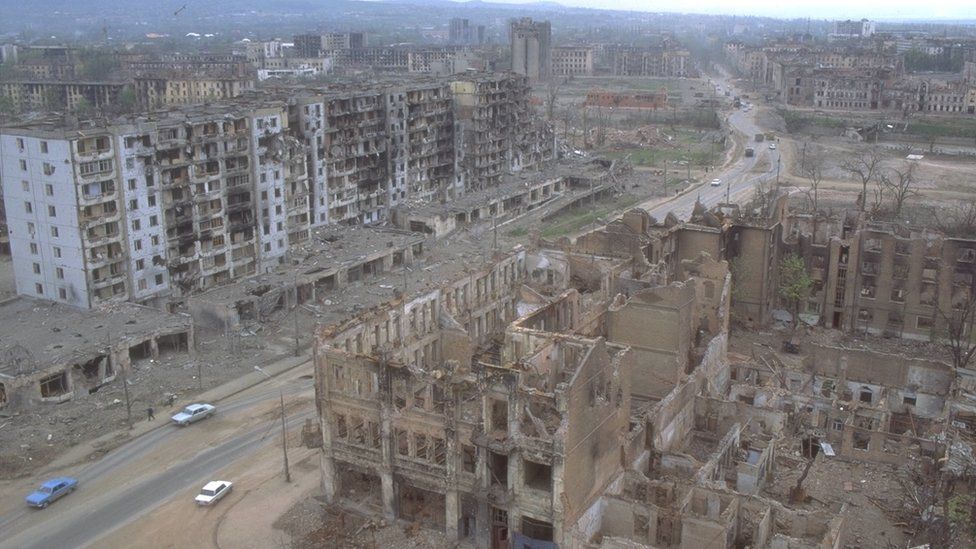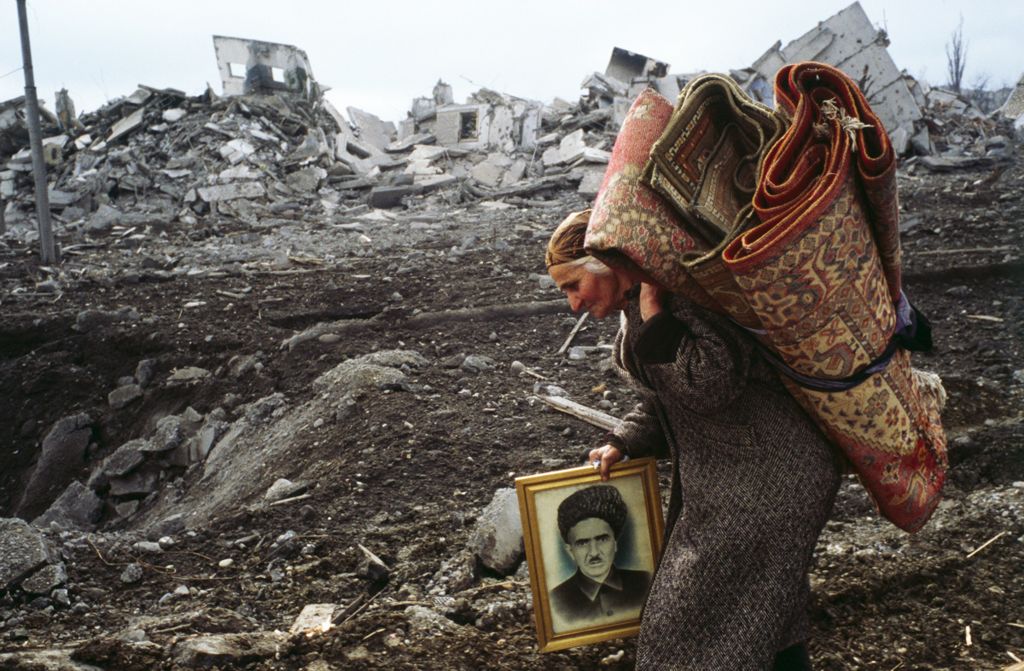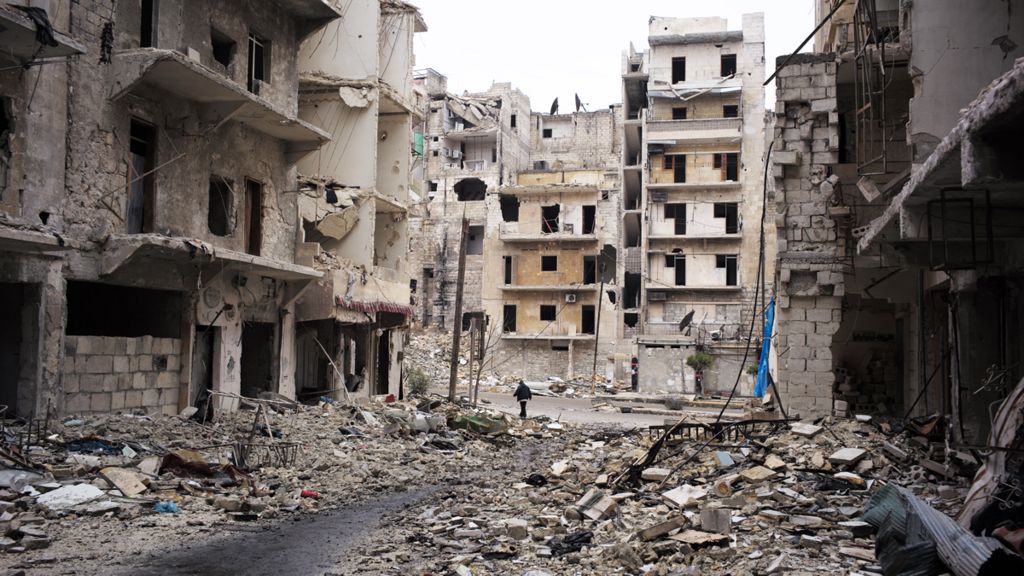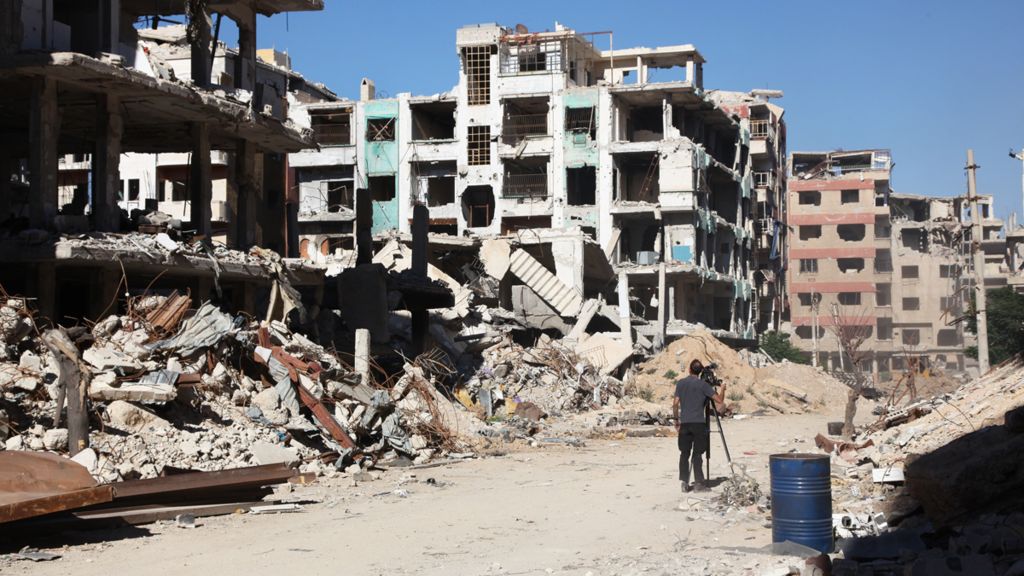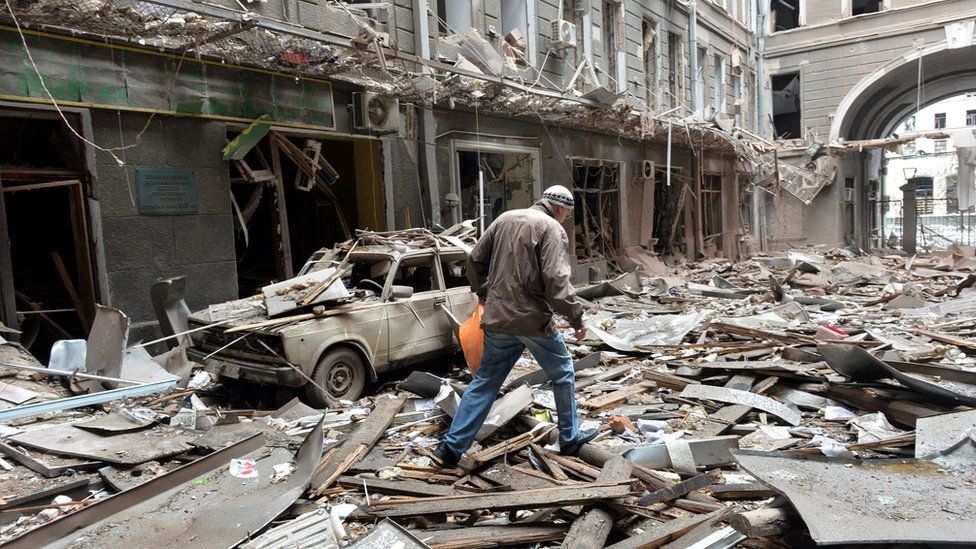Ukrainian civilians, assisted by the country’s military, are evacuating the small city of Irpin, which sits just 20km (12 miles) north-west of Kyiv.
The route is a difficult one, with many having to travel by foot along shelled roads and damaged bridges.
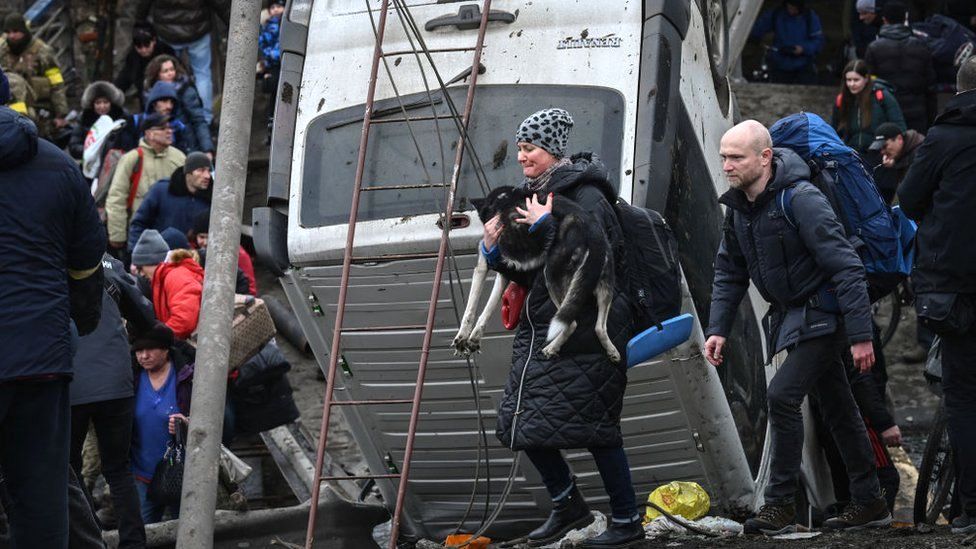
Irpin has found itself on the frontline between Russian and Ukrainian forces over the past week.
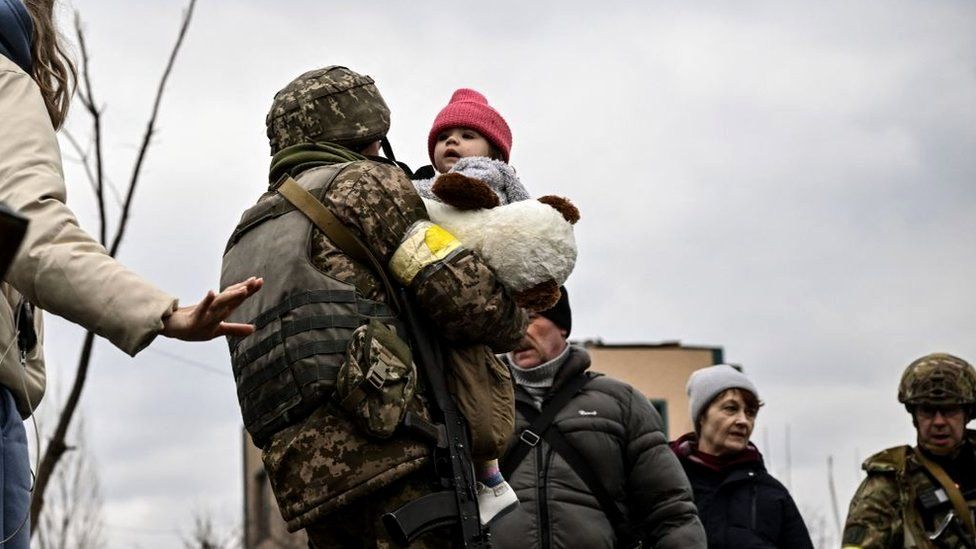
Artillery and air strikes have caused severe damage in the area, with at least one attack leaving a residential tower block almost completely destroyed.
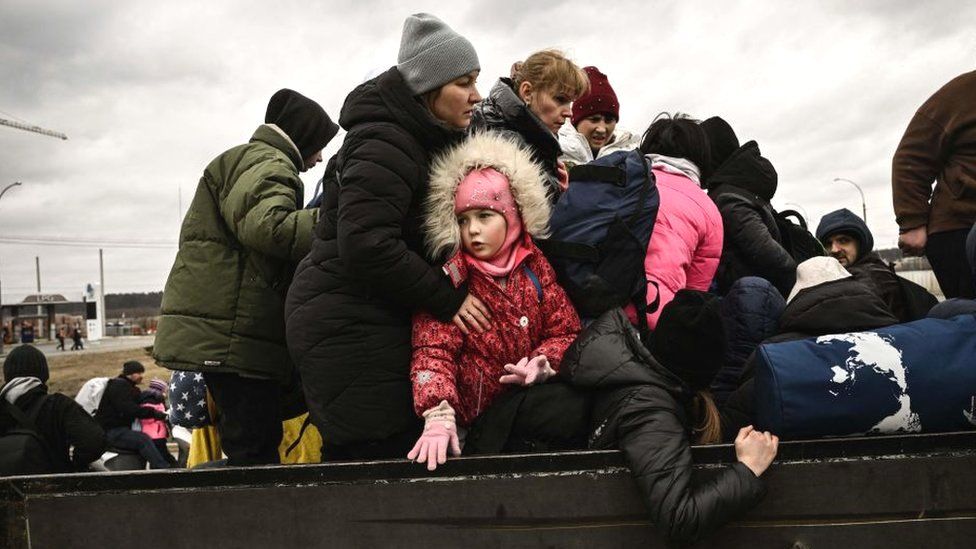
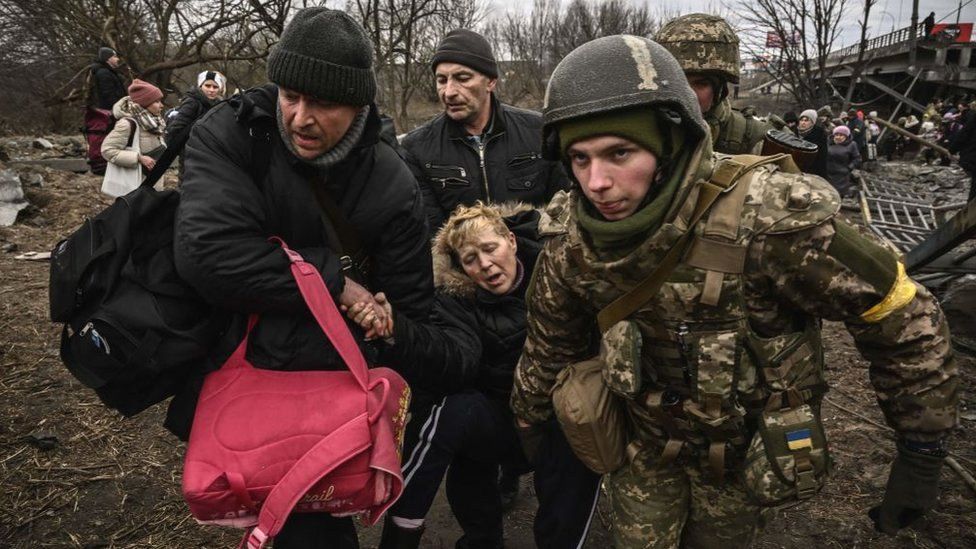
In recent days, trains have been transporting evacuees, mostly women and children, from Irpin on the outskirts of Kyiv into the capital.
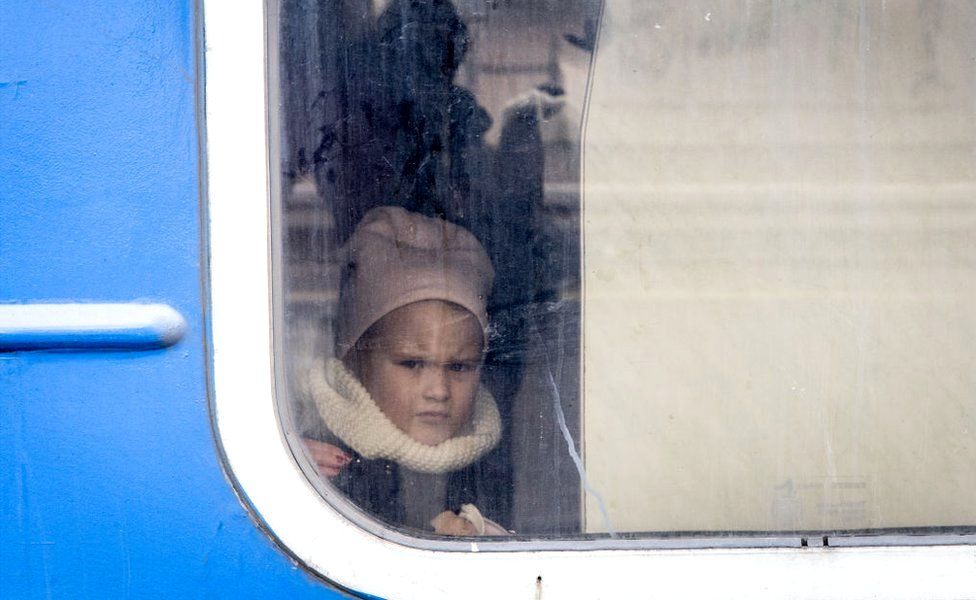
Earlier this week, the shelling of a residential block in Irpin was captured in video footage.


